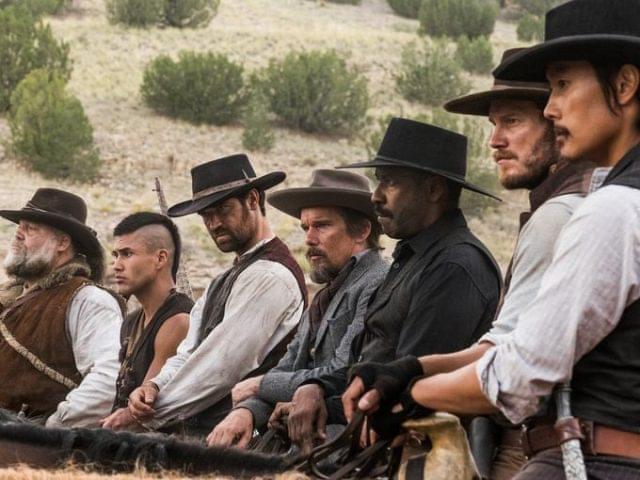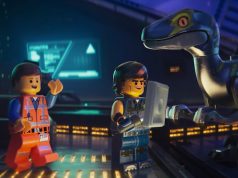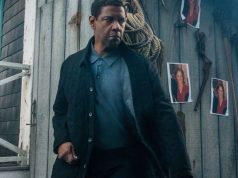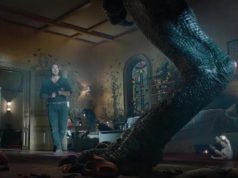
Except for some slightly more graphic violence and language than its forebears used to get away with, the new version of “The Magnificent Seven” is a Western in the old-fashioned style. That’s mostly a compliment, though not entirely. With its shootouts and showdowns, its dramatic saloon entrances (and window-smashing saloon exits), its rousing musical score that hints at but isn’t Elmer Bernstein’s iconic original, the film has the comfortable feel of something familiar. (Well, duh. It’s a remake.) But it also shares with many Westerns from the first half of the 20th century a lack of subtext. There’s nothing on this film’s mind beyond what’s explicitly spelled out in its simple, morally black-and-white plot. After a few decades of new Westerns that explored, subverted, and questioned the old tropes — often while still indulging in them, so it was a win-win — to see one that’s blithely uninterested in self-examination is a little disappointing.
But only a little. Director Antoine Fuqua, reuniting with his “Training Day” stars Denzel Washington and Ethan Hawke, sets his sights on fun, and he has good aim. In 1879, representatives from the mining town of Rose Creek hire a righteous warrant officer named Chisolm (Washington) to gather a posse to defend the town from Bartholomew Bogue (Peter Sarsgaard, enjoying his villainy), who’s threatening to kill any resident who won’t sell him their land for pennies. Chisolm, who fought for the Union, rounds up silver-tongued Confederate sharp-shooter Goodnight Robicheaux (Hawke); glib gunfighter and card-trick magician Faraday (Chris Pratt); Mexican outlaw Vasquez (Manuel Garcia-Rulfo); old trapper and Indian-killer Jack Horne (Vincent D’Onofrio); Asian blade expert Billy Rocks (Byung-hun Lee); and an Indian named Red Harvest (Martin Sensmeier).
It’s a multicultural group, as Robicheaux points out — though it’s noteworthy that he identifies Chisolm not as “the black guy” but as the Union representative, even though the Mexican, Indian, and “Oriental” are called out as such. Chisolm’s race is never mentioned in the film, despite his being a black man in a position of authority in a story set just after the Civil War. This “Magnificent Seven” is the opposite of “The Hateful Eight,” both in title and philosophy, and is thus even less realistic than Tarantino’s postbellum revenge fantasia.
The dialogue, written by Nic Pizzolatto (HBO’s “True Detective”) and Richard Wenk (“16 Blocks”), has a snappy energy that sustains it. Chris Pratt serves as comic relief, bickering with (for example) Vasquez over whose grandfather killed whom at the Alamo, and claiming not to remember drunkenly fighting a very short man because “I thought you were a leprechaun.” Robicheaux teaches the townspeople how to shoot while suffering from what we’d call PTSD over his own war experiences. Chisolm rides tall in the saddle and maintains order among his “troops” (“a bunch of strays” someone calls them), and leaves one with the distinct impression that Denzel should be in more Westerns.
Only fierce young widow Emma Cullen (Haley Bennett) stands out among the Rose Creek residents, the rest of whom are expendable (as are Bogue’s men — there’s a high body count). For that matter, some of the Seven get the short shrift, too. But when the town is finally besieged, Fuqua stages the action thrillingly, delivering the crowd-pleasing, six-shooting adventure and heroism that have entertained audiences since the dawn of cinema. It’s not great — it’s no “The Magnificent Seven” — but it’ll satisfy any varmint hungry for some Old West justice.
B+ (2 hrs., 12 min.; )





